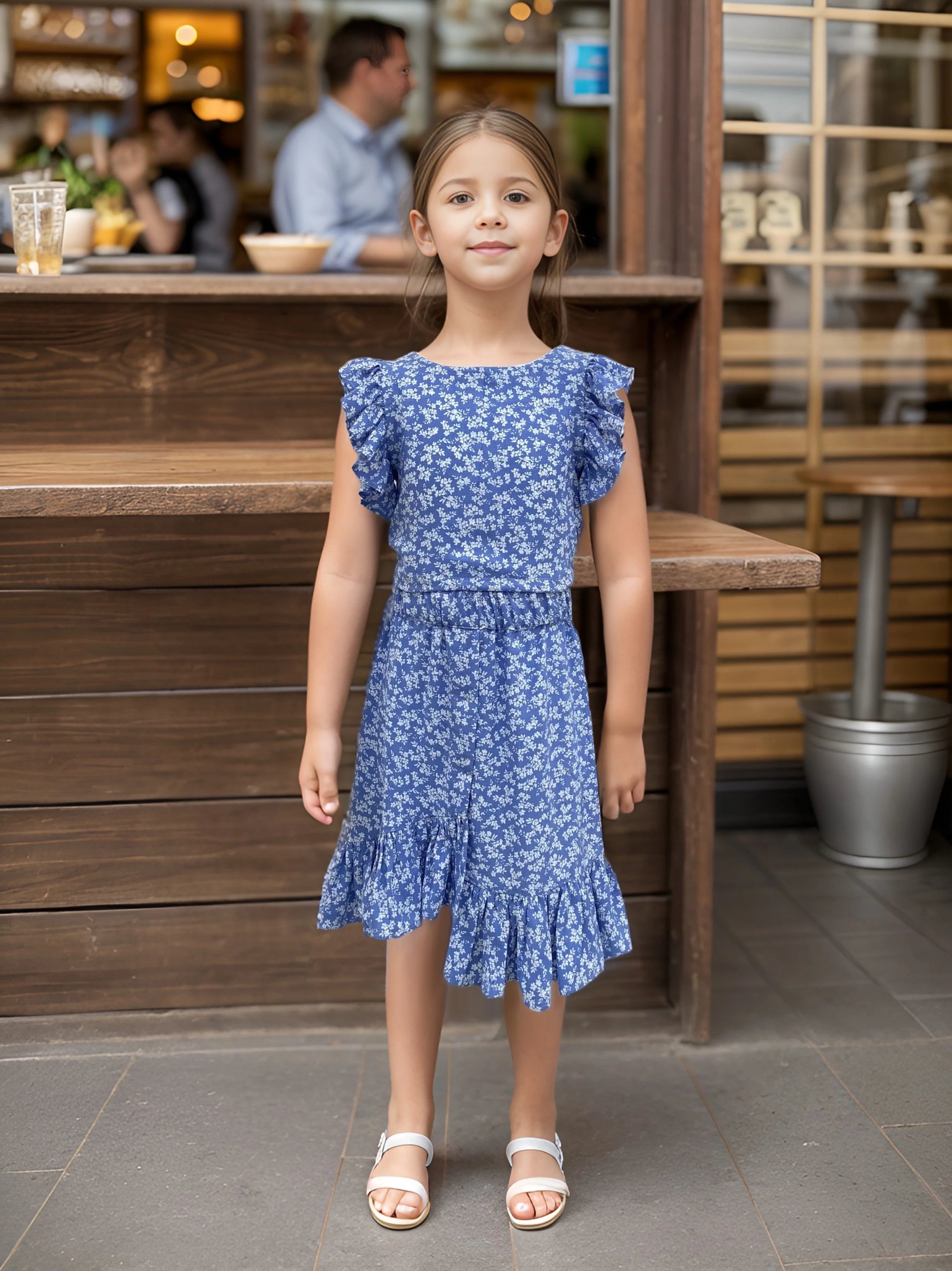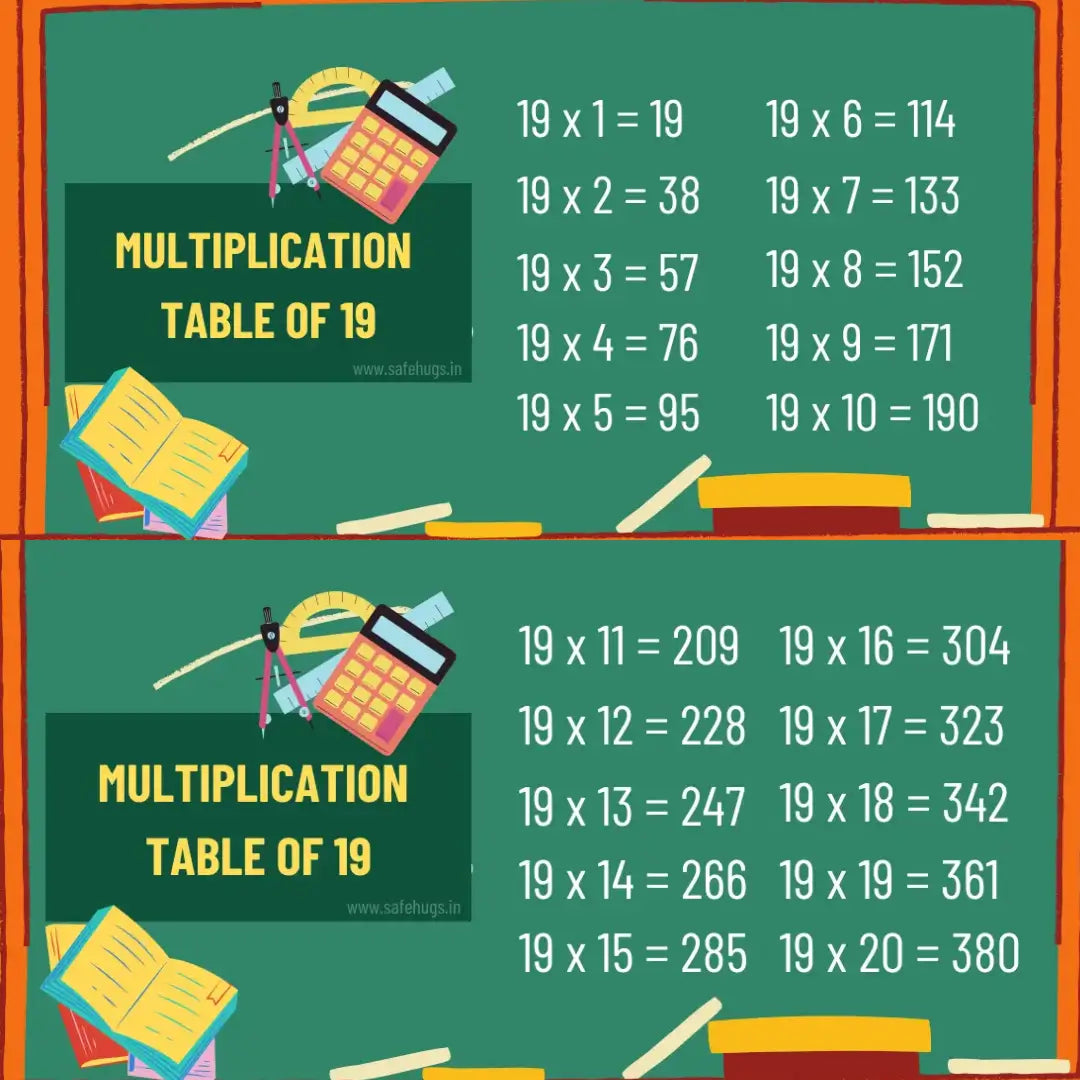21 Table: Multiplication Table For Kids (Print PDF)
Multiplication tables are fundamental tools in math that help simplify calculations by displaying the results of multiplying one number by another. In this article, we'll explore the table of 21 and share some tips and tricks to make learning fun and engaging.


Tips & Tricks for Learning the Table of 21
1. Learning the 21 times table becomes simpler if you're already familiar with the table of 20. You can derive the multiples of 21 by adding natural numbers from 1 to 10 to the corresponding multiples of 20. Here's how:
20 × 1 = 20, and adding 1 gives 21
20 × 2 = 40, and adding 2 gives 42
20 × 3 = 60, and adding 3 gives 63
20 × 4 = 80, and adding 4 gives 84

2. Teach kids to add 21 repeatedly. Start with 21, then add 21 to get 42, then add 21 again to get 63, and so on. It helps reinforce addition skills and internalizes the sequence.

3. Break Down 21 as (10 + 11): Split 21 into 10 and 11, then multiply each separately and add the results:
For example, 21 x 3: (10 x 3) + (11 x 3) = 30 + 33 = 63

4. If you still need to simplify, you can break down 21 into 10+10+1 and multiply accordingly. For eg - 21 x 11 = (10x11) + (10x11) + (1x11) = 110 + 110 +11 = 231
Work Backwards: Use division to help learn multiplication. For example, if kids know that 294÷21=14, then they can also remember 21×14=294. i.e.,21 times 14 = 294
5. 21 Table Song - Read the 21 Table in Words from 1 to 10
We know now the multiples of table 21 but how do we read the table? We will read the table of 21 in the following manner:

Fun Activities to Memorize 21 Table




Quiz Time: Test Your Knowledge





Why is Learning 21 table Important?
Learning the multiplication table of 21 is important because it enhances kids' mathematical skills and supports faster problem-solving. Here are a few reasons why mastering this table is beneficial:
- Builds Stronger Mental Math Skills: Knowing the table of 21 helps kids perform quick calculations, which is useful for math problems involving larger numbers and real-life scenarios like budgeting, time management, or measurements.
- Improves Understanding of Multiplication Patterns: Higher multiplication tables like 21 follow patterns that can help kids recognize sequences and build confidence in handling larger numbers, which is useful in advanced math topics.
- Boosts Confidence with Complex Math: As kids become familiar with tables beyond 10, they feel more prepared to tackle multi-digit multiplication, division, fractions, and algebra, which rely on a solid foundation in multiplication.
- Supports Academic Success: Many math and science concepts rely on multiplication. By mastering the table of 21, kids can work through assignments and exams faster and more accurately, improving their overall academic performance.
- Promotes Problem-Solving Skills: Working with higher numbers develops critical thinking, as kids learn to break down larger numbers and use multiplication efficiently, a skill useful in real-world problem-solving.
Additional Resources
To further support learning, here are some additional resources:
- Educational Apps: Apps like "Kids Multiplication Math Games" or "Math Games: Math For Kids" offer interactive ways to practice multiplication tables.


- Websites: Websites like "Times Tables" and "Math Mammoth" provide multiplication games, quizzes, and printable worksheets.
- Printable Worksheets: Websites like "K5 Learning" have free downloadable worksheets for practicing the 18 Table.
- Songs and Videos:
- Table of 21 | Learn Multiplication
- Multiplication Tables For Students
- Multiplication Songs
- Learn Multiplication - Table of 21 to 25 | Elearninng studio

Links to other tables
We've organized the multiplication tables from 2 to 20 with tips and tricks to make learning fun. You can also refer to these for extra practice.
FAQ'S
Why is learning the multiplication table of 21 important?
Learning the multiplication table of 21 helps improve mental math skills and makes solving math problems quicker and easier. It also builds a strong foundation for more advanced math topics like division, fractions, and algebra.
What are some tips to memorize the table of 21?
Break it down into smaller steps, use patterns (like adding 20 repeatedly), practice with flashcards, and use quizzes or games to make learning fun. Writing the table multiple times also helps reinforce memory.
How can I make learning the 21 table fun for my child?
Try activities like playing bingo with multiples of 21, using math puzzles, making a multiplication chart together, or playing memory-matching games where they match multiplication problems to the correct answer.
What patterns can help in learning the table of 21?
In the table of 21, each product is 21 more than the previous one (21, 42, 63, and so on). Noticing this pattern of adding 21 each time can help kids quickly recall the next multiple.
At what age should kids start learning the table of 21?
Kids are typically ready to learn the table of 21 by late elementary school, around ages 9 to 11. By then, they usually have a solid grasp of basic multiplication tables, which makes it easier to tackle higher numbers like 21.
































